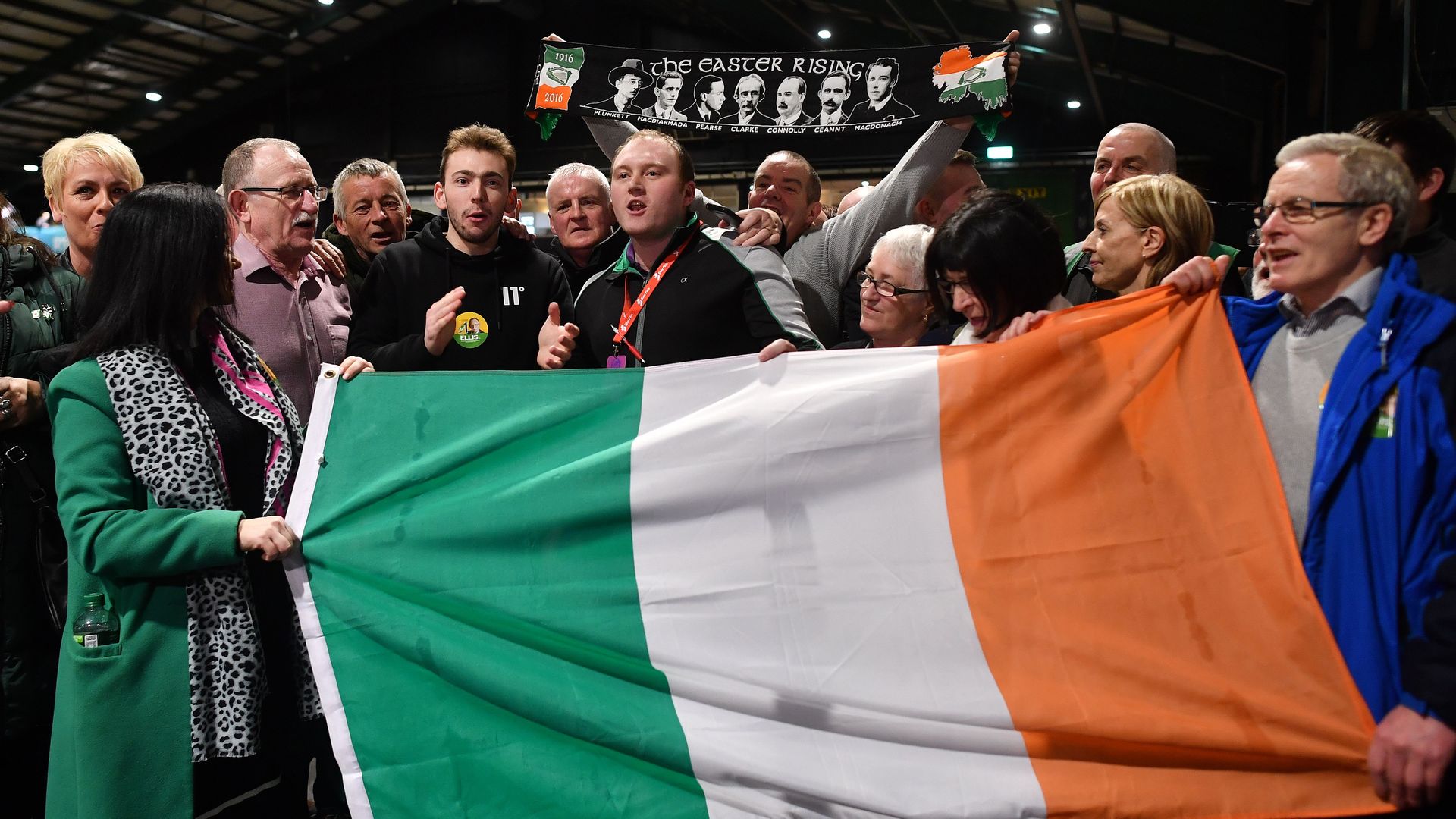Feb 9, 2020 - World
Sinn Féin, formerly linked to IRA, virtually ties for first in Irish elections
Add Axios as your preferred source to
see more of our stories on Google.

Sinn Féin party supporters holding the Irish flag, Dublin, Feb. 9. Photo: Ben Stansall/AFP via Getty Images
